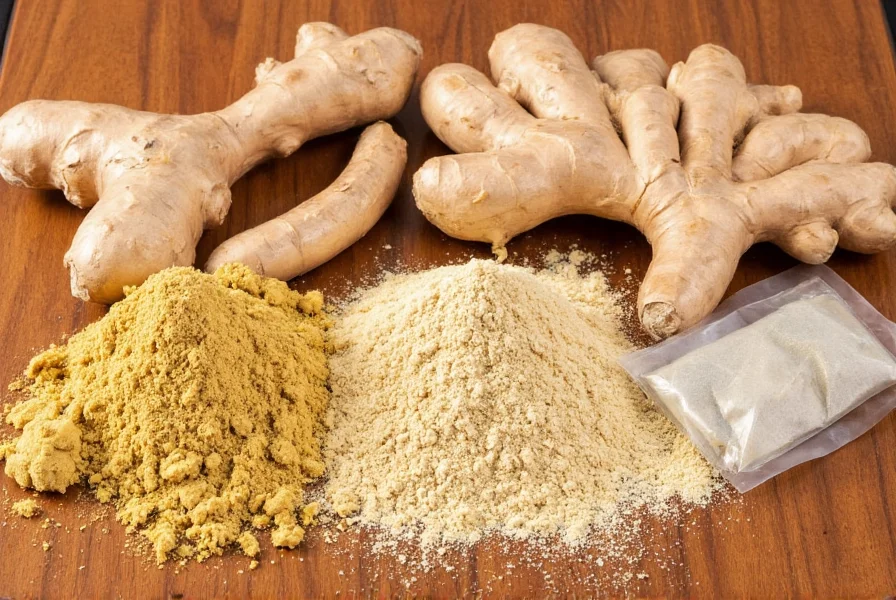For centuries, ginger has been valued across cultures not just as a culinary spice but as a medicinal plant. Modern science continues to validate many of these traditional uses while uncovering new potential benefits. This comprehensive guide examines what current research tells us about ginger's effects on human health, separating evidence-based facts from popular myths.
The Science Behind Ginger's Health Properties
Ginger's therapeutic properties primarily come from bioactive compounds called gingerols, shogaols, and zingerone. These compounds give ginger its distinctive flavor and are responsible for most of its health benefits. Unlike many herbal remedies with limited scientific backing, ginger has been the subject of numerous clinical studies examining its effects on various health conditions.

Proven Health Benefits of Ginger
Digestive Health Support
One of ginger's most well-documented benefits is its positive impact on digestive health. Research indicates that ginger can accelerate gastric emptying, which helps reduce bloating and discomfort. A study published in the Journal of Gastroenterology and Hepatology found that participants who consumed ginger before meals experienced significantly faster stomach emptying compared to placebo.
Nausea and Vomiting Relief
Ginger has demonstrated effectiveness in managing various types of nausea:
| Type of Nausea | Research Findings | Recommended Dosage |
|---|---|---|
| Morning sickness | Multiple studies show ginger reduces pregnancy-related nausea | 1 gram daily (consult physician first) |
| Post-operative nausea | Effective in reducing severity and frequency | 1 gram before surgery |
| Chemotherapy-induced nausea | Shows promise as complementary treatment | 0.5-1 gram daily during treatment |
| Motion sickness | May reduce symptoms though evidence is mixed | 1 gram 30 minutes before travel |
Inflammation and Pain Reduction
Ginger's anti-inflammatory properties make it potentially beneficial for managing osteoarthritis and muscle pain. A review in Arthritis found that ginger extract significantly reduced knee pain in osteoarthritis patients compared to placebo. The mechanism appears similar to non-steroidal anti-inflammatory drugs (NSAIDs), but with fewer gastrointestinal side effects.
Cardiovascular Health Support
Emerging research suggests ginger may help maintain healthy cholesterol levels and blood pressure. A 2020 study in Nutrition Journal reported that participants who consumed 3 grams of ginger powder daily for 8 weeks showed significant reductions in LDL cholesterol and triglycerides compared to the control group.
How Much Ginger Should You Consume?
The appropriate amount of ginger depends on your health goals and individual tolerance:
- General health maintenance: 1/2 to 1 teaspoon of fresh grated ginger daily
- Digestive support: 1 gram before or with meals
- Nausea relief: 1 gram at onset of symptoms
- Inflammation management: 2 grams daily divided into multiple doses
Most clinical studies use doses between 1-3 grams of ginger per day without significant side effects. However, it's important to note that fresh ginger, dried ginger, and ginger extracts have different potency levels.

Potential Side Effects and Precautions
While ginger is generally safe for most people, certain individuals should exercise caution:
- Blood thinning effects: Ginger may enhance the effects of blood-thinning medications like warfarin
- Gallstone concerns: May increase bile production, potentially problematic for those with gallstones
- Pregnancy considerations: Generally safe for morning sickness but consult your healthcare provider
- Surgery preparation: Discontinue at least 2 weeks before scheduled surgery due to bleeding risk
Common side effects at higher doses (more than 4 grams daily) may include heartburn, diarrhea, and mouth irritation. If you experience any adverse reactions, discontinue use and consult a healthcare professional.
Choosing and Using Ginger Effectively
Not all ginger products offer the same benefits. Here's how to maximize ginger's health potential:
Fresh vs. Dried vs. Supplement Forms
Fresh ginger root typically contains higher levels of gingerols, while dried ginger has more shogaols due to the drying process. Supplements standardize the active compounds but quality varies significantly between brands.
Optimal Preparation Methods
To preserve ginger's beneficial compounds:
- Grate fresh ginger rather than chopping for maximum surface area
- Add to dishes near the end of cooking to preserve active compounds
- For tea, steep fresh ginger in hot (not boiling) water for 10 minutes
- Combine with black pepper to potentially enhance absorption
Limitations of Current Research
While ginger shows promise for several health conditions, it's important to understand the limitations of current research:
- Many studies use small sample sizes
- Long-term effects beyond 3-6 months are not well documented
- Optimal dosing varies between individuals and health conditions
- Most research examines ginger as a complementary treatment, not a replacement for conventional medicine
Ginger should be viewed as part of an overall healthy lifestyle rather than a miracle cure. It works best when combined with other healthy habits including balanced nutrition, regular exercise, and adequate sleep.
Practical Ways to Incorporate Ginger Into Your Diet
Here are simple, evidence-based methods to enjoy ginger's health benefits:
- Add freshly grated ginger to morning smoothies
- Prepare ginger tea by steeping sliced ginger in hot water
- Include ginger in salad dressings and marinades
- Try ginger-infused water throughout the day
- Add to soups and stir-fries during the last few minutes of cooking
Frequently Asked Questions
How much ginger should I consume daily for health benefits?
Research suggests 1-1.5 grams of ginger daily provides measurable health benefits for most people. This equals about 1/2 to 1 teaspoon of fresh grated ginger. For specific conditions like nausea, up to 1 gram at symptom onset may be beneficial. Always consult your healthcare provider before starting any new supplement regimen.
Can ginger help with digestive issues?
Yes, multiple studies confirm ginger's positive effects on digestion. It accelerates gastric emptying, reduces bloating, and may help with indigestion. Ginger stimulates digestive enzymes and relaxes the intestinal tract. For best results, consume 1/2 to 1 teaspoon of fresh ginger before or with meals. People with GERD should monitor their tolerance as ginger may cause heartburn in some individuals.
Is fresh ginger more effective than dried ginger?
Both forms offer benefits but contain different active compounds. Fresh ginger has higher levels of gingerols, while dried ginger contains more shogaols due to the drying process. Fresh ginger may be slightly more effective for nausea relief, while dried ginger shows stronger anti-inflammatory properties in some studies. For maximum benefit, consider using both forms in your diet depending on your health goals.
Can I take ginger with blood pressure medication?
Ginger may interact with certain blood pressure medications as it can lower blood pressure. If you're taking antihypertensive drugs, consult your healthcare provider before adding significant amounts of ginger to your diet. Moderate culinary use (1/2 teaspoon daily) is generally safe, but higher therapeutic doses require medical supervision. Always monitor your blood pressure when making dietary changes.
How long does it take to feel ginger's health benefits?
The timeframe varies by benefit. For nausea relief, effects may be felt within 30-60 minutes. Digestive benefits often become noticeable within a few days of regular use. Anti-inflammatory effects for conditions like osteoarthritis typically require consistent use for 4-8 weeks. Individual responses vary based on metabolism, health status, and the specific condition being addressed.











 浙公网安备
33010002000092号
浙公网安备
33010002000092号 浙B2-20120091-4
浙B2-20120091-4